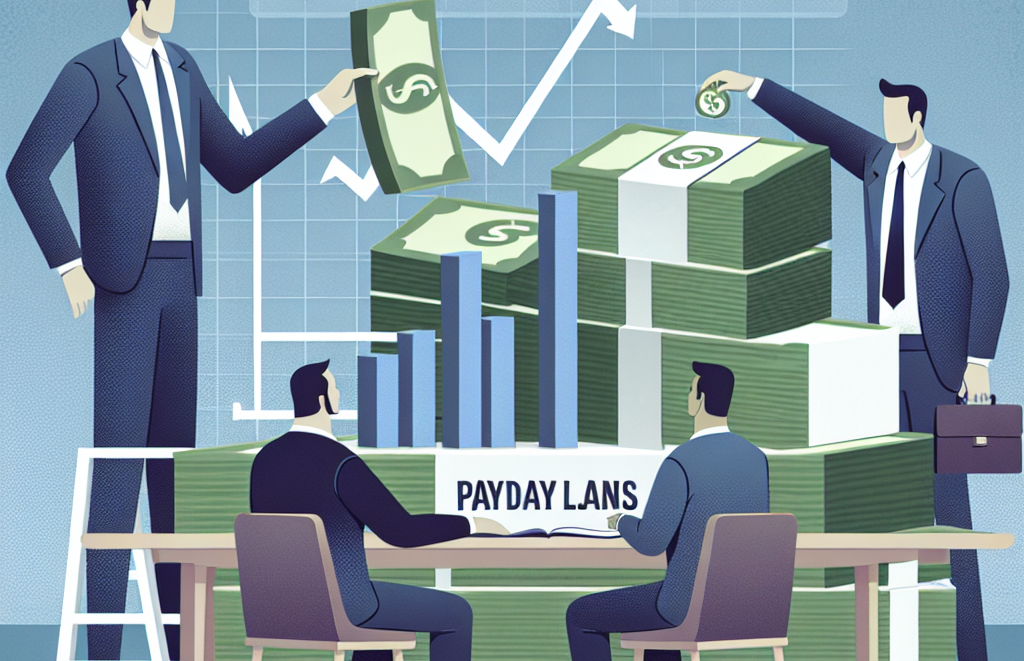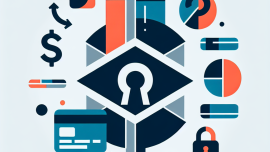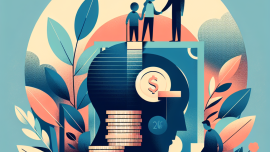
Payday Loans Are Shrinking—But Have They Really Changed?
Privacy in the Age of Digital Banking: What Consumers Deserve
Ah, the wonders of digital banking. The convenience of transferring money while still in bed, the ease of depositing checks by snapping a photo, and let’s not forget the thrill of receiving an instant fraud alert when your card has been used to buy five vape pens in Utah… despite you living in Vermont.
But let’s not sugarcoat the truth: convenience often comes at a cost. And that cost, dear reader, is your privacy.
I’m Eleanor “Ellie” Cartwright—advocate, watchdog, and proud pain in the neck of bureaucratic nonsense. Today, we’re diving deep into what digital banking means for your personal data, and more importantly, what rights you have as a consumer in this brave, cashless world.
Why Privacy Matters More Than Ever
Back in the good ol’ days (read: 1997), financial institutions kept records locked away in filing cabinets. Today, your financial history is one data breach away from becoming a hacker’s favorite bedtime story. But it’s not just about malicious attacks. Far more often, it’s the banks themselves—or the third-party apps they partner with—that are gleefully harvesting your personal information for “user enhancement.”
Let me put this plainly: You’re not the customer. You’re the product.
Your Data Is Being Collected—And You Probably Consented
Those terms and conditions you clicked ‘Accept’ on? They likely included permission for your bank or fintech app to:
- Track your spending habits
- Analyze where you shop and when
- Share that information with advertisers
- Build a consumer profile to sell to third parties
And all that happened the moment you downloaded that “free budgeting tool.”
The Regulatory Landscape: Patchwork Protection
In the United States, consumer data privacy is regulated by a tangle of state and federal laws. Unlike the EU’s sweeping General Data Protection Regulation (GDPR), the U.S. approach can be summed up as: “We’re working on it.”
What Laws Offer You Protection?
- Gramm-Leach-Bliley Act (GLBA): Requires financial institutions to provide notices about their information-sharing practices and to safeguard sensitive data.
- California Consumer Privacy Act (CCPA): If you live in California, you have the right to know what personal data is being collected, why, and to whom it’s being sold.
- Fair Credit Reporting Act (FCRA): Limits how your credit information is used and shared.
That’s all nice on paper, but enforcement is spotty, oversight is limited, and loopholes are wider than the Grand Canyon.
The Invisible Price of Personalization
Ever noticed how your banking app now “recommends” financial products? That hyper-personalization isn’t due to artificial intelligence learning to love you—it’s your data in action.
These algorithmic suggestions are built from thousands of data points, which can include:
- Your transaction history
- Your geo-location
- Your search behavior on the app
- Third-party data brokers’ info (yes, that’s a thing)
The result? You’re being “nudged” toward financial decisions, often without even realizing there’s a thumb on the scale.
Consumer Rights in the Digital Banking Era
This is where my inner bulldog perks up. Because you, as a consumer, are not powerless. The key is knowing what rights you do have and how to defend them.
What You Deserve—and Should Demand
- Clear disclosure: Every banking or fintech app should explain—in plain English—what data is being collected and why.
- Opt-out options: You should be able to tell your bank “no thanks” when it comes to selling your data.
- Data deletion rights: If you close your digital banking account, your information shouldn’t linger like a ghost in the algorithmic machine.
- Security standards: End-to-end encryption, two-factor authentication, and zero-trust architecture should be non-negotiable features.
If your bank isn’t meeting these standards, it’s time to speak up—or better yet, switch banks.
Simple Steps to Take Back Control
Feeling like you’ve handed over too much? You’re not alone. But it’s not too late to reclaim your digital dignity. Here’s your to-do list:
1. Review Privacy Settings
Go into your banking and budgeting apps and disable unnecessary data collection or ad personalization features. Yes, it’s time-consuming—and yes, it’s worth it.
2. Read the Privacy Policy
No, not all of it. But at least scan for key phrases like “third-party sharing,” “personal data,” and “opt out.” If it’s longer than your mortgage, that’s a red flag.
3. Use Alternatives with Better Standards
Consider switching to banks or fintech companies that are known for user privacy and data minimalism. Look for companies certified under standards like ISO/IEC 27001.
4. File a Complaint
If you feel a financial institution has mishandled your data, file a complaint with:
Let bureaucracy work for you, for once.
The Future of Privacy in Banking—And Why Advocacy Matters
Let me be blunt: The digital banking revolution isn’t going anywhere. But that doesn’t mean we have to roll over and let our lives become one giant dataset in someone’s server farm. With smart regulations and proactive consumer behavior, we can demand a financial system that champions transparency, security, and respect for personal boundaries.
And if they think they can ignore us? Well, they haven’t met Ellie Cartwright.
Stay Informed, Stay Empowered
At Financeone, we believe financial systems should work for people—not the other way around. To learn more about your rights and how to be a smarter financial advocate, check out our About Us page or contact us today. We’re here to ensure you’re never alone in this fight.
Because privacy isn’t a luxury—it’s a right. And it’s high time we acted like it.









Leave a Reply